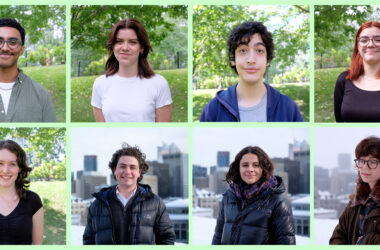 ikedaspa.com, wikia.com
ikedaspa.com, wikia.comI bet that if you gave me three guesses, I would be able to tell you what you did this past Saturday night. Eat? Drink? Turned your lights off for an hour for Earth Hour? I’m sure all of you were dedicated environmentalists, and made sure that no matter where you were, you turned the lights out, lit some candles, and contemplated issues such as melting glaciers and carbon emissions.
But if that wasn’t the way you spent your Saturday night, you probably checked Facebook or Twitter at least once. So, let me tell you a little bit about what happened that evening, and what social media has to do with it.
Saturday, March 31 at 8:30 p.m. was the sixth annual Earth Hour, which saw 150 countries and a staggering 6,494 towns and cities come together around the globe to embrace the darkness and raise awareness about climate change.
Starting in 2007, Earth Hour was organized by the World Wildlife Fund (WWF) in Sydney, Australia when 2.2 million individuals and 2,100 businesses participated in the hour of action. The following year, Toronto was the next city to join in the action, and shortly after an additional 35 countries and roughly 400 cities decided to tag along. Each year more and more cities and people have joined the global Earth Hour event.
Scheduling it for the last Saturday of every March allows the event to occur around the equinox, meaning that as the hour ticks closer, it will be dark in most cities, making the blackout an effective statement. In addition, world-renowned landmarks such as the Sydney Opera House and the Eiffel Tower turn off their lights for a dramatic change of pace. Some notable additions this year included the International Space Station and the UN Secretary General’s office, according to Earth Hour website.
511 cities participated across Canada this year and landmarks such as the CN Tower, Niagara Falls, and Montreal’s Cross on Mount Royal all shut off their lights for the hour.
“Many of these iconic buildings, monuments, and places are lit up at night. People look to them as sources of identity, as touchstones of belonging and meaning. Turning lights off on Angkor, the Acropolis, or the Sydney Opera House among others is a strong symbol. A symbol to help us see the world differently,” UNESCO Director-General Irina Bokova said.
Across Asia, records have been broken and social media has helped play a crucial role in increased participation. Not only did ‘Happy Earth Hour’ become the world’s number one trend on Twitter by the time Southeast Asia turned off the lights, but in India an MTV Unplugged concert held in New Delhi was powered with alternative energy and owed its massive turnout to social media networks. In China, hundreds of university students gathered at the Great Wall of China to show their support for the environment, and according to the Twitter account of the U.S. Embassy in Seoul, 74,502 buildings in South Korea turned off their lights for Earth Hour.
“Social media is not just connecting the world but is becoming the primary organizing tool for citizens to take action. People from over 150 countries across the globe are harnessing the power of online platforms to physically care for the future of the planet,” Earth Hour Co-Founder and Executive Director Andy Ridley said in a press release on April 1, 2012.
So, while some argue that turning off the lights doesn’t do anything substantial to fight climate change, the point isn’t just to reduce carbon emissions during that one hour. The global effort to band together and visually display commitment is a symbolic action, demonstrating that the world must act if it wants to preserve the environment for future generations.
“Turning off our lights is a symbol of our commitment to sustainable energy for all,” said UN Secretary General, Ban Ki-moon in a recorded public message. “We need to fuel our future with clean, efficient, and affordable energy. By acting together today, we can power a brighter tomorrow.”








